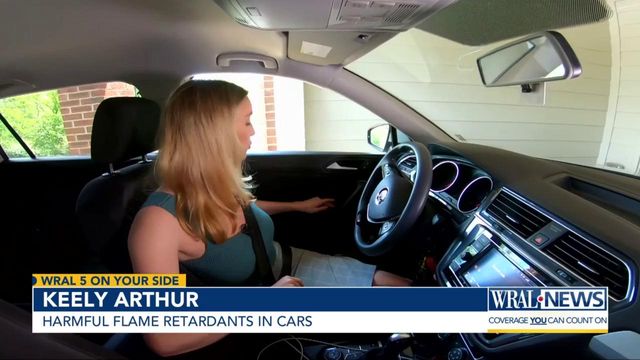Consumer Reports petitions for changes to cancer-causing chemicals in car seats
A safety feature in nearly all cars may be linked to cancer, according to a new, peer-reviewed study.
The study found 99 percent of car seats are covered in flame retardants containing known or potential carcinogenic chemicals.
Researchers from Duke and Berkeley asked participants to hang a silicon band in their rearview mirror.
For seven days, the silicon samplers collected chemicals present in the air and were then sent to a lab for extraction. Rebecca Hoehn, a PhD candidate at Duke University, and other researchers found potential carcinogens or known carcinogens, in nearly all their samples.
The chemicals, which are commonly used in flame retardants, are present in seat foam, car plastics and fabric.
“Over time, those are able to off-gas into the air, and there’s the potential that you could breathe them in,” Hoehn said.
A Consumer Reports petition is calling on the National Highway Traffic Safety Administration to review and update its flame-retardant safety standards. The current standards were adopted in 1971, according to Consumer Reports.
The NHTSA told WRAL 5 On Your Side that it is aware of the study and “looks forward to reviewing it.”
Hoehn added that engineering cars in a way to reduce the use of flame retardants is also a possible solution.
“If there is a way to achieve fire safety without adding potential carcinogens to our car, that would be the ideal approach,” she said.











